by Glenn | Jun 23, 2013 | interview, Writing

Author: Nicholas Guild
Years ago, as an aspiring writer, I read “The Assyrian” by Nicholas Guild. Since that day I have considered him one of the finest authors in the literary world—and my silent mentor of the craft. There are others who speak highly of Nicholas Guild as well…Publishers Weekly, the Associated Press, The New York Times Book Review, Book of the Month Club, The Library Journal and more, plus a long list of prominent newspapers. The list goes on, especially in international markets from Europe to Japan and Russia, but I’ll stop for now. Fast forward ahead though and today I’m honored to interview Nicholas Guild, and know him as a friend.
From thrillers, historical novels, and on to horror fiction, he has covered the realm of genres and provided novels for every reader’s enjoyment. His first novel was published in 1975 and, thankfully, we still have great works coming from him. In reviews about his novels you read what we all wish would be said about us: “…a master of timing, plot, and style…” “The most languid grace of his writings also sets the measured pace…” “…sentences are tight, well-constructed and an additional bonus, his plot and sub-plots cannot be faulted.” Formerly a Creative Writing professor at several universities, Guild now lives in Maryland.
So, this has been the shortest overview of an author whose accolades seem endless, yet that’s only part of what I want you to know about Nicholas Guild.
Last year I wrote an article about him, placed it on my website, and went on with life, never suspecting where that blog would lead. He read it, replied, and we’ve been corresponding ever since. In Guild I’ve noted extreme intelligence, yet a man who never thinks himself better than you. He is well published, far more than I could ever hope for in ten lifetimes, but he discusses writing with me as if I were a Nobel Peace Prize winner in Literature. We come from totally different backgrounds, discuss life in general, and banter about political views, yet, he treats me with the respect old friends extend one another even if they do not agree. He has complimented my work yet doesn’t spare truths about it (something I value highly in him.) I wish we had become friends years ago, but things in life seem to work out as they should, and now we are. Better late than never, I say. All said, though, Nicholas Guild is a good man. That’s as great a compliment as can be given here in Texas.
My gratitude to Nicholas Guild for the interview and sharing his experience with us. There’s something within the interview for everyone, and I hope you find food for thought.
Regards,
Glenn
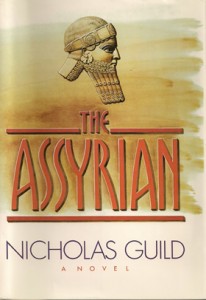
Q: With the evolution of book publishing—print versus ebook or audio, agent versus indie, publishing house versus indie—how does a new author determine their first path to take, such as to go for an agent, a publishing house, or remain an indie-author?
A: Granted, the publishing business has changed a lot with the advent of the ebook, but the key to selling a book—or anything else, for that matter—is publicity. People have to know that a book exists before they can buy it. And the sad fact of the matter is that advertising an ebook is a tough business. A print book has the advantage that it will go out to prospective reviewers and that, by virtue of the fact that some publisher has bought it, some pre-selection can be assumed to have taken place. Anybody can self-publish an ebook, with the result that there are vast quantities of very junky ebooks. So how does an ebook author bring his or her work to the attention of people who are prepared to pay money to read it? Newspapers and magazines print reviews and, at present, they aren’t much interested in ebooks. My advice is to try to sell your book to a hardcopy publisher first, and this is easier to do with an agent than without. Agents at least know who to go to, so they are worth their percentage.
Q: Although you have an agent and have been published through major houses, your first horror/paranormal novel “The Moonlight” was published solely as an ebook as if you were an indie-author. What were your thoughts on going this route rather than taking it to a publishing house?
A: The honest answer is that my agents didn’t like the book, so I let it sit on my hard disk for nearly twenty years and then I reread it, came to the conclusion that my agent was wrong, and decided that, what the hell, I’ll do it myself as an ebook. In a sense, it was an act of desperation. I thought it was a good novel and I wanted it out there. Certainly, in the current market, I would have preferred to publish it in hardcopy first.
Q: What do you consider key habits writers should establish?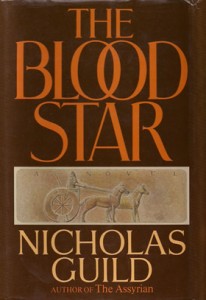
A: If you want to be a writer you should write every day, and write with care. Also, review your work regularly after enough time has passed that you’re no longer quite so in love with it and can look at it with cold eyes, as if someone else had written it. And read as much of the best work in your genre that you can find. Good models, along with the habits of regularity and self-criticism, are essential.
Q: While teaching, you had a lengthy hiatus from the publishing world. What obstacles or difficulties overall, if any, did you encounter upon your return to writing? Smooth transition back to writing or some form of personal search to find your ‘voice’ again?
A: Essentially, I found I was starting over, at least as far as my relationship to the publishing world was concerned. But during my “hiatus” I never stopped writing. I just couldn’t seem to get past the first several chapters of any project I started. I think as much as anything it was a failure of nerve, of confidence. Now I have several started novels, one of which, titled Blood, is already finished. And I’m charging ahead.
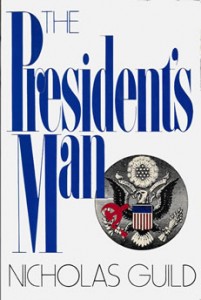 Q: Regardless of the genre, every author has research to perform for their project. Any helpful pointers? Any pitfalls to watch out for?
Q: Regardless of the genre, every author has research to perform for their project. Any helpful pointers? Any pitfalls to watch out for?
A: The only pitfall in research that I can think of is not to do it. You have to do your homework. This is particularly true in historical fiction, which is my primary area. I just finished a novel set in Greece in the 4th Century B.C. (tentatively titled The Spartan Dagger and being brought out by Tor Books—I just couldn’t resist the plug), and you have to know the details of life in that period. You can’t afford mistakes because if you make one, and the reader catches you at it, it shatters the illusion. So do a lot of reading.
Q: How connected do you become to a novel you are writing? Ever reach a point of addiction whereby you feel you must write at every opportunity or can you walk away and return to your project as you wish and still have the tempo and flow of the work?
A: Once I’ve started a book, I almost have to work on it every day. If I miss a day I tend to lose my nerve and it will take me a while to get back into it. This is just my own, no doubt neurotic, pattern. If I’m really into a book I start dreaming about it, and some of the dreams are really strange. When I was writing The Assyrian I dreamt that I ran into Sennacherib behind the counter of a dry cleaning store, where he told me, “you know, you weren’t quite right about. . .” Part of writing a novel is sustaining a fantasy, and that can do funny things to your head.
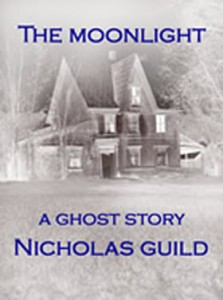
Q: Has any other profession ever come to mind that you might enjoy if you were not an author or had been a Creative Writing professor?
A: I don’t have any choice about being a writer. I have to write. It’s an obsession. But I was an English teacher for several years and I enjoyed that. Mark Twain once said about being a riverboat pilot, “I loved that profession, far more than any I have followed since.” I almost feel that way about teaching, but not quite.
Q: What do you feel are the worst or most common mistakes new or established authors make?
A: I think that both the worst and more common mistake that any writer makes is to fall in love with his own words. Scott Fitzgerald once said that every story has to go through three editing processes: one for grammar, one for style and one to cut out all the immortal stuff. When you stop being critical of your own work, you’re lost.
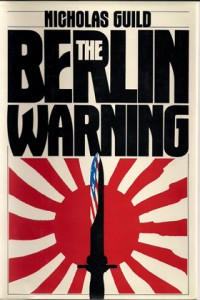 Q: How does the idea for a novel come about? What are your creative processes?
Q: How does the idea for a novel come about? What are your creative processes?
A: I have no idea. Sometimes an idea for a novel will just drop into my lap out of nowhere. Sometimes I’ll start with a gesture or an idea for a scene and the novel will grow up around that. Sometimes the story will have to marinate for years before I’m ready to write it. Believe me, the “creative process” is as much a mystery to me as to anyone else.
Q: New or aspiring authors often mistakenly place well established authors, such as yourself, on pedestals, and believe your work flows like honey and your lives are far different than the “everyday man.” What is an average day like for Nicholas Guild, a best-selling, international author? Any sort of routine or schedule you follow to balance life and writing? Or is your life truly champagne and caviar?
A: It sure as hell isn’t champagne and caviar. I work at writing as a job and I work at it seven days a week. A writer’s life is quiet and isolated. You have to be prepared to spend large stretches of time alone. Aside from that, I live like everybody else. It’s a mistake for a writer to imagine that he’s significantly different from other people. In the first place it isn’t true and in the second it isn’t good for your art to cut yourself off from normal life.
Q: Are there any special traits or talents which set authors apart from each other?
A: It goes without saying that a writer has to have a certain facility with language, which is probably not any difference in kind from having musical talent or a talent for fixing machines. Beyond that, in my experience most writers, at least writers of fiction, are neurotic and insecure. I have a theory that we all live mainly in fantasy until we’re about four or five, and then most people start living in the real world and the fantasy machine sort of shuts down. A writer keeps creating an imagined life for himself/herself until he/she is old and gray. Why? Probably because the writer-in-embryo doesn’t find the real world all that congenial, and the situation doesn’t improve with time. I used to tell my creative writing students, “if you find this isn’t for you, congratulations. It just means that you had a happy childhood and are reasonably well adjusted.” Fiction writing doesn’t proceed out of anything healthy.
Q: When someone approaches you and says, “I want to write a book. Where should I begin or what should I do first?” What would be your recommendation?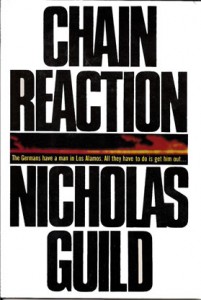
A: My recommendation would be, start writing. Just get stuff down on paper. It will either begin to take shape in your mind or it won’t. Writing comes first, thinking comes later. In this business there are no magic formulas.
Q: The Internet, Social Media and Networking. These have had profound impact on the publishing world. What are your thoughts on them or the future of publishing?
A: Obviously, the internet and its components are the wave of the future. In a few years hardcopy books will be a niche business. The problem is that the internet is not really set up to support something like the book business, at least not yet. We don’t have the equivalent of, say, The New York Times Book Review, where the reviews command real respect. There has to be some sort of selection process that keeps out the books that are obvious trash—although God knows enough hardcopy books are obvious trash. The internet book business needs to develop a marketing structure. I have no doubt this will happen, but it hasn’t happened yet.
Q: Who or what acts as the sounding board for your novels when you have finished a first draft and want feedback?
A: I show drafts to such friends as are willing to read them, and of course I show them to my agent, who is very good at finding what is wrong—too good for comfort sometimes.
 Q: You have a large European readership, as well as in America. Do you have any projects or novels on the horizon that you can share with us?
Q: You have a large European readership, as well as in America. Do you have any projects or novels on the horizon that you can share with us?
A: I have one I’m working on at the moment which is a sort of romance for grownups. I always hate to describe the plots of my projected stories because they always sound so goofy, but it is set in the 1870’s.
Q: Where can people go to learn more about you and your writings, as well as purchase your novels?
A: Try my website, which I am sorry to say I wrote myself: http://www.nicholasguild.com. I try to have an essay on some aspect of fiction on my home page and you can read reviews and what amounts to flap copy of the novels I have available as ebooks. The ebooks themselves are available at most of the important outlets like Amazon, Barnes & Noble and Apple.
Comments are welcomed and we would love to hear your thoughts about this interview!
Want to know more about Nicholas Guild, his works, coming novels, or contact him? Try these links:
Website –http://NicholasGuild.com
Facebook – https://www.facebook.com/AuthorNicholasGuild
Twitter – https://twitter.com/NicholasGuild
E-Mail – Ni************@***il.com
Amazon – http://www.amazon.com/Nicholas-Guild/e/B000APF41U/ref=ntt_dp_epwbk_0
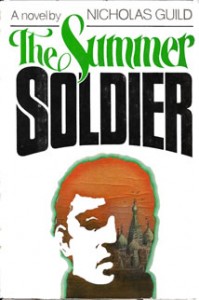
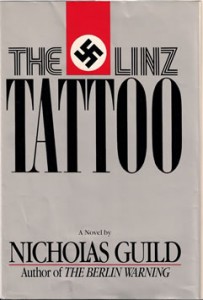
by Glenn | Jun 10, 2013 | Writing
I finished my six month security assignment and the school year has ended which gives me a break from the reading classes I do for several grades. Some of my other activities have obtained a balance and now I can focus once again on my writings. For a while it felt as if I were juggling bowling balls with my time. There are personal rewards though, such as accomplishing a year’s worth of security work in six months, and having school children tell me how much I will be missed by them. But I’m glad to have the break. I needed it!
First, let me say that everyone should go thank a teacher for all they do in our schools. For two years I’ve gone every Tuesday to four different classrooms of two schools in the kindergarten, first and second grades, to work with kids and read books. From what I have witnessed, teachers do not get paid enough for all they do for their students – especially for the long hours they undergo to accomplish their jobs! When the kids are dismissed at the end of the day, the majority of the teachers still have three, four or more hours of paperwork and lesson plans. You may think you know what a teacher does, but unless you actually spend time with them on a consistent basis – you know nothing. Athletes get ridiculously high salaries while teachers, the very ones who educate our children, get ridiculously low salaries.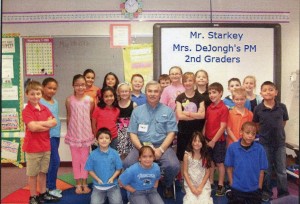
During my six-month absence from writing and social media networks, I thought about past challenges and those that will confront me again:
(1) Social media is good, but it needs to be kept in check if you are a serious writer. So, I’m going to attempt to establish a few hours for email, business correspondence, and networking, and dedicate the majority of the day to writing. At least I’ll start out that way…
(2) Instead of marketing and promoting my novels in a shotgun spraying manner, I need to develop a better plan. The last thing I want to become is one of those authors that bombard every social media arena with the same postings you silently dislike and pay little attention to. I’m sorry, but when I open my email and it’s filled with ten Facebook notices from the same name, I start deleting them.
(3) I realized once again that authors, especially indie-authors, are a generous, friendly, and supportive community by nature. Authors want to succeed, but they want other authors to succeed as well. Several of my indie friends knew I was working long hours each day and had little opportunity for my novels, much less to promote my works on the social networks. What did they do? They posted information about my novels, about me, and were always supportive. They said, “Don’t worry…just hurry back to the writing world!” Now that is true friendship, especially since I have never met 99% of those authors in person.
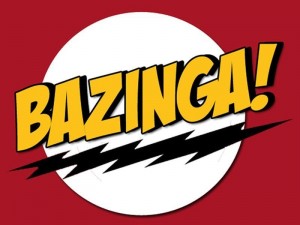 There are so many I wish to thank, and I know I will miss someone’s name, but here are a few of those fine indie-authors: Belinda Witzenhausen, Micheal Rivers, Harvey Burgess, Patti Roberts, Bonnie B. Latino, and Vonda Norwood. (Follow the link of Belinda’s name to her site and the interview she recently did on me.)
There are so many I wish to thank, and I know I will miss someone’s name, but here are a few of those fine indie-authors: Belinda Witzenhausen, Micheal Rivers, Harvey Burgess, Patti Roberts, Bonnie B. Latino, and Vonda Norwood. (Follow the link of Belinda’s name to her site and the interview she recently did on me.)
Another fine author I want to note is Nicholas Guild. I enjoy his writings, read them and try to learn from his craftsmanship, and in a sense, consider him a mentor. Then, through a blog I wrote about him last year, we have become good friends. Although he is a NY Times Best-Selling Author and internationally published, he’s also a supporter of indie-authors. His first horror/ghost novel THE MOONLIGHT was only released as an ebook. Nicholas has truly been an encouraging factor for me when I grew quite weary these last six months.
In a few weeks I will be attending the 2013 Texas Gang Investigators Conference in Houston, Texas. I’m honored to be asked to attend for the second year in a row and sign my novels. The conference is strictly for law enforcement related persons. You can find the story I wrote about these great men and women on my site… just follow the link – T.G.I.A.
I wish everyone the best and by end of summer hope to release my next novel, AMAZON MOON.
Glenn
by Glenn | Apr 9, 2013 | Life
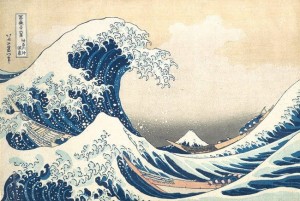 “Burning the candle at both ends—and running out of candle!”
“Burning the candle at both ends—and running out of candle!”
Well, that’s how I have felt these past five months. I finished my latest novel AMAZON MOON in December and a good friend, international best-selling author Nicholas Guild read the work and provided excellent recommendations. All I have to do is find enough hours in the day to make the modifications he suggested then the novel will be ready to move into publication.
The problem is that as Nick was receiving AMAZON MOON, I was asked to be the Security Director for a major industrial port. The previous Security Director had left for another job and they needed someone to handle operations and their large number of federal grant projects. Having retired as a Security Manager of a global oil corporation, this wasn’t my first rodeo. I refused the position full-time and said I would work for six months until they found a replacement. I also continue (it’s in my contract to allow me so) to volunteer working with school children each Tuesday to assist them with their reading skills. And (of course there’s more), along with my writings, I am the Secretary of my Masonic Lodge (a full-time position which I do in my “spare” time.)
I had a perfect storm of events collide. Suddenly, my book was ready to finalize, and I was up to my ears in a super tight schedule. Working with federal grant projects is about as enjoyable as performing a “Do-It-Yourself Root Canal,” plus the remainder of the security operations cannot be ignored. I have two Monday’s every week because I work Monday, am off Tuesday to work with the school kids, then return to work Wednesday (which feels like my second Monday because I’m trying to catch up from what I missed Tuesday.) I’m not totally off work on Tuesdays either because I still 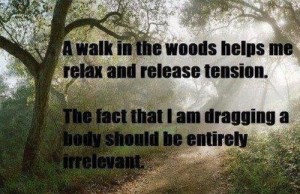 receive cellphone calls and have to jump on my laptop throughout the day to keep my workload flowing. And somewhere between all of that, my lodge duties come into play, plus I must write a monthly newsletter…more paperwork headaches.
receive cellphone calls and have to jump on my laptop throughout the day to keep my workload flowing. And somewhere between all of that, my lodge duties come into play, plus I must write a monthly newsletter…more paperwork headaches.
As every author knows, maintaining a social media presence demands allotting time per day to various sites (particularly your own website.) If you don’t keep your published works out before the public, you are quickly forgotten. Fortunately, my author friends help keep me alive in those arenas by giving me an occasional plug. The indie community is truly wonderful! People on the opposite side of the world that you’ve never met become great friends.
But as all storms do, this one in my life shall pass too. At the end of May, my contract as Security Director will be complete. The school year will come to a close as well. And the lodge work, well, that will remain. Most importantly, I will return full force to my writings, finalize AMAZON MOON then begin the novels still patiently waiting within me to be written.
Now, if I can just find enough candle to burn until the storm passes…
GLENN
by Glenn | Oct 24, 2012 | Writing
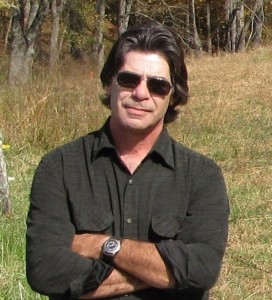 Micheal Rivers is best known as being a genuinely talented author of paranormal thrillers and true friend to the indie world. I’ve read several of his novels, truly enjoyed them, and I am quite fortunate to personally know such a fine gentleman. Previously, Nicholas Guild, a best-selling, international author, was kind enough to write a guest post for my site’s readers. Today, I am proud to include one by Micheal Rivers in my treasure chest of writing jewels. Whether you’re a seasoned novelist or novice, there is definitely something to learn from Mr. Rivers’ article.
Micheal Rivers is best known as being a genuinely talented author of paranormal thrillers and true friend to the indie world. I’ve read several of his novels, truly enjoyed them, and I am quite fortunate to personally know such a fine gentleman. Previously, Nicholas Guild, a best-selling, international author, was kind enough to write a guest post for my site’s readers. Today, I am proud to include one by Micheal Rivers in my treasure chest of writing jewels. Whether you’re a seasoned novelist or novice, there is definitely something to learn from Mr. Rivers’ article.
A WRITER’S DILEMMA
Micheal Rivers
A writer is a wonderful individual. Throughout the centuries mankind has borrowed, purchased and cajoled anything they possibly could to either educate themselves or entertain themselves through books. Whether you are highly educated or you are just a beginning reader you will find enjoyment within the pages of a book. 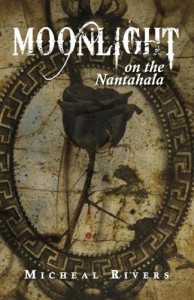
Let’s take a look at writing and how it is accomplished. I will use the works of fiction for this topic. Fiction is tool for the entertainment of readers, but it too has rules that need to be followed to be successful.
A novice writer may or may not realize how much preparation goes into a single work of fiction. Just as if you are writing non-fiction you have to research your subject matter. For every great work of fiction lies the grain of truth. Poor research on your subject will carry you into a story that is not plausible in any state and will destroy any efforts you have put into the book very quickly.
In your research the characters must remain in their original state, such as their manner of speech, or the way they conduct themselves. A sudden change in the character’s development will result in the destruction of what you have already introduced your reader to. The reader will keep this in mind and begin to automatically distrust the rest of the story regardless of its worth. This will come back to you when a book is reviewed by the public. Which would you rather have, a four or five star review or a two star stating your story is good but the characters lack substance?
A well written story will engross the reader to such a point minor mistakes may be overlooked to an extent. This being said I research my books almost to a fault. Trust me; you will still have readers to disagree due to their lack of research about what they doubt concerning what you have written.
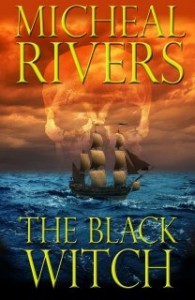 Many of your best writers place themselves in the story written from a witness’s point of view. You must distance yourself from that aspect unless you are capable of writing the story with a nonpartisan aspect. It is difficult but not impossible for newer writers in the field.
Many of your best writers place themselves in the story written from a witness’s point of view. You must distance yourself from that aspect unless you are capable of writing the story with a nonpartisan aspect. It is difficult but not impossible for newer writers in the field.
One of the biggest mistakes a new writer will make is believing he has written the perfect novel and will be beloved among his fellow authors. Usually his editing in his zeal for perfection is his death knell. A professional editor is a mandatory necessity. Although you have done this you will still find minor mistakes, the more eyes on your manuscript the better off you are. This is not saying release it to the public for scrutiny, far from it. Your objective is to give the reader the best story you possibly can and retain your style. Some editors will attempt to change things in your story which not only does not fit and cause hours of rewrites, but will also cause you to lose what your readers love about your stories. If your first release is poorly edited because you trusted your publisher, it is not the fault of the publisher. The final release is your responsibility and that story will come back to haunt you for years to come.
Do your words flow across the page or do they read as a conglomeration of statements? It will make a very large difference as to how your story will be perceived by a wide audience. You must remember the reader cannot read your thoughts or see what you are envisioning. You must lead him by the hand into a world you have created. Let him see what you see. Do your characters and settings induce emotional responses? This is very important also and must coordinate with the flow of the sentences.
I have dozens of people ask me who the protagonist is in a story. I neither build characters or protagonist. I, personally consider myself to build people, someone you can identify with if necessary. A person in a story cannot carry the story alone, just as in real life there is always somebody to share the burden in some form. This is only one point of view and I am sure there will be those who differ in opinion. I am happy with that; it makes the world a little brighter.
 If you succeed in getting the reader to understand your character, good or bad, you have succeeded in bringing the character to life. Written correctly he or she can become as three dimensional as you wish them to be. Rhyme and reason will take you far.
If you succeed in getting the reader to understand your character, good or bad, you have succeeded in bringing the character to life. Written correctly he or she can become as three dimensional as you wish them to be. Rhyme and reason will take you far. 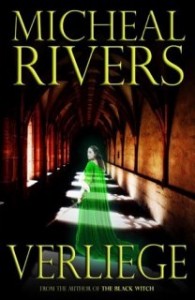
Visit Micheal Rivers site at http://www.MichealRivers.com to learn more about him.

by Glenn | Oct 18, 2012 | Life
After a long year I recently completed the first draft of Amazon Moon. The first full edit went fairly smooth, or at least as painless as I could make it. Now I’m patiently awaiting replies from a few beta 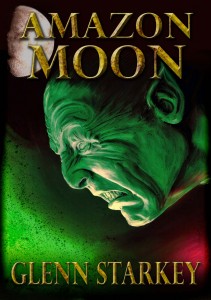 readers and then will go through the novel once more to finalize it.
readers and then will go through the novel once more to finalize it.
The writing of Amazon Moon has truly been an interesting, personal journey for me as an author. I set out upon the path of wanting to write a good, action-adventure story with a bit of sci-fi set in the deep, mysterious Amazonia region—and ended with a discovery of evils that I did not know so fully existed.
The goal of every author is to be a good storyteller, yet as writers, we hold a responsibility to educate our readers as well about certain facts as we move them through chapters until the end. Such responsibility was better understood by me once my protagonist, John Alvarez, entered the rain forest.
A psychologist might have a field day analyzing John; the boy who longed for love, became lost within himself when his family was lost to him, yet as a man, eventually found a home within the Marine Corps to anchor his soul to. He learned warfare well, possibly too well. That could be debated, and then came the insanity thrust upon him by having to doubt the truths of all he has learned to date once in the rain forest. But as I wrote this novel, John Alvarez took a slightly different path in his life than I originally intended. The variation began when he met the indigenous people of the Amazon and discovered their plights.
Simply saying, “the Amazon,” invokes images of thick jungle, wild animals, hidden tribes, and the immediate setting of danger at every turn. It’s one of the last bastions of immense territory in the world yet to be fully explored. Yet, with all its hazards and menace, we owe so much to this region.
The bio-diversity of the Amazonia rain forest is vital to our eco-system and pharmaceuticals. Climate change is heavily dependent upon it and we need the forest to keep it in balance. Over two-thirds of all mass produced drugs are derived from medicinal plants. In the Amazon, 650 species of plants with pharmaceutical value have been discovered. Gold, oil, and other resources are within this region as well. The value of the rain forest is immense, and it is home to many indigenous Indian tribes. 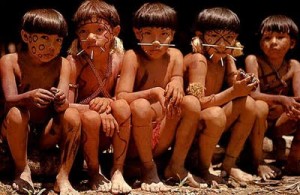
The history overall of the Amazon is fascinating and truly worthy of reading. But it is saddening as well, often to the point of being comparable to what our Native American Indians endured as the government and gold seekers chose to steal their rich lands.
There may be predatory creatures in the Amazon—black caiman, jaguar, cougar, piranha, viperous bushmaster snakes and monstrous anacondas—but none so vile and vicious as the “civilized” men and governments who decided they wanted to drive the tribes out in order to fill their pockets from the sale of the region’s rich resources.
Every country the Amazonia region touches is guilty in one form or another of injustices against the indigenous tribes. That in itself should be an embarrassment to mankind, yet little has been done by governments to protect these native people or the Amazon. What has been done is nothing more than creating a façade to display to the world.
 Imagine if your family lived in a rain forest village under primitive conditions. In addition to the daily struggles to provide food for your family, you must be concerned with brutal Maoist guerilla factions such as the Shining Path traveling through your land; drug cartels and trafficking, their soldiers killing anyone they find in order to protect their drugs; land grabbers and ‘loggers’ raping and savagely killing your loved ones then burning your village to the ground because they want the trees for lumber—or the gold seekers who murder villagers in order to stake a claim and destroy the land as they mine for gold. But worse, is when governments such as the Peruvian government use their military to bomb your village and then send in militia to drive you out.
Imagine if your family lived in a rain forest village under primitive conditions. In addition to the daily struggles to provide food for your family, you must be concerned with brutal Maoist guerilla factions such as the Shining Path traveling through your land; drug cartels and trafficking, their soldiers killing anyone they find in order to protect their drugs; land grabbers and ‘loggers’ raping and savagely killing your loved ones then burning your village to the ground because they want the trees for lumber—or the gold seekers who murder villagers in order to stake a claim and destroy the land as they mine for gold. But worse, is when governments such as the Peruvian government use their military to bomb your village and then send in militia to drive you out.
The indigenous tribes of Amazonia once numbered in the thousands, now due to civilized society’s gifts of rape, torture, murder, infectious diseases, venereal diseases, and violent land grabbing, some tribes are near extinction and fragmented while others only number in the hundreds.
Does this all sound painfully similar to our own embarrassing United States history in the dealings with Native American Indians? Unfortunately, it is almost verbatim.
In one disgusting account, I read that loggers used a different approach to rid themselves of a tribe. They donated clothes to the tribe. It sounds quite peaceful and generous until it was discovered that the clothes had all been worn by people sick with small pox and other infectious diseases—then was intentionally given to the Indians. The outcome was as expected by the loggers. The majority of the tribe died.
I read one news report of loggers burning an eight years old village child to death. They caught the girl, tied her to a tree then set fire to her while she was alive. It was part of their tactic to force the tribe off their land so the timber could be taken. The government was still investigating and said they believed it never happened although they did not discuss the tribes that have been almost massacred by loggers.
It would take a novel to fully tell of the injustices alone performed and being performed today on the Amazonia tribes. My hope with this article is to inform readers there are far more stories to be known than what I have now written. 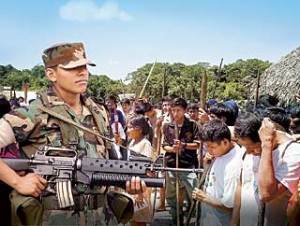
I encourage you to seek out the information and read it for yourself. Use the Internet and search for “indigenous tribes of the Amazon” then begin reading about the atrocities committed against them. Perform a search on “rainforest loggers” and “Amazon gold miners” and see for yourself the volumes of real-life horror stories that will appear.
When Amazon Moon is published in the future, I hope you will enjoy its action filled, adventurous story, as well as my other presently published novels. But I hope most of all you will continue reading about the Amazon itself.
One day mankind may learn to not repeat the mistakes we have made throughout history. For now, I doubt so.
Sincerely,
Glenn




 Q: Regardless of the genre, every author has research to perform for their project. Any helpful pointers? Any pitfalls to watch out for?
Q: Regardless of the genre, every author has research to perform for their project. Any helpful pointers? Any pitfalls to watch out for? Q: How does the idea for a novel come about? What are your creative processes?
Q: How does the idea for a novel come about? What are your creative processes?
 Q: You have a large European readership, as well as in America. Do you have any projects or novels on the horizon that you can share with us?
Q: You have a large European readership, as well as in America. Do you have any projects or novels on the horizon that you can share with us?










 receive cellphone calls and have to jump on my laptop throughout the day to keep my workload flowing. And somewhere between all of that, my lodge duties come into play, plus I must write a monthly newsletter…more paperwork headaches.
receive cellphone calls and have to jump on my laptop throughout the day to keep my workload flowing. And somewhere between all of that, my lodge duties come into play, plus I must write a monthly newsletter…more paperwork headaches.













